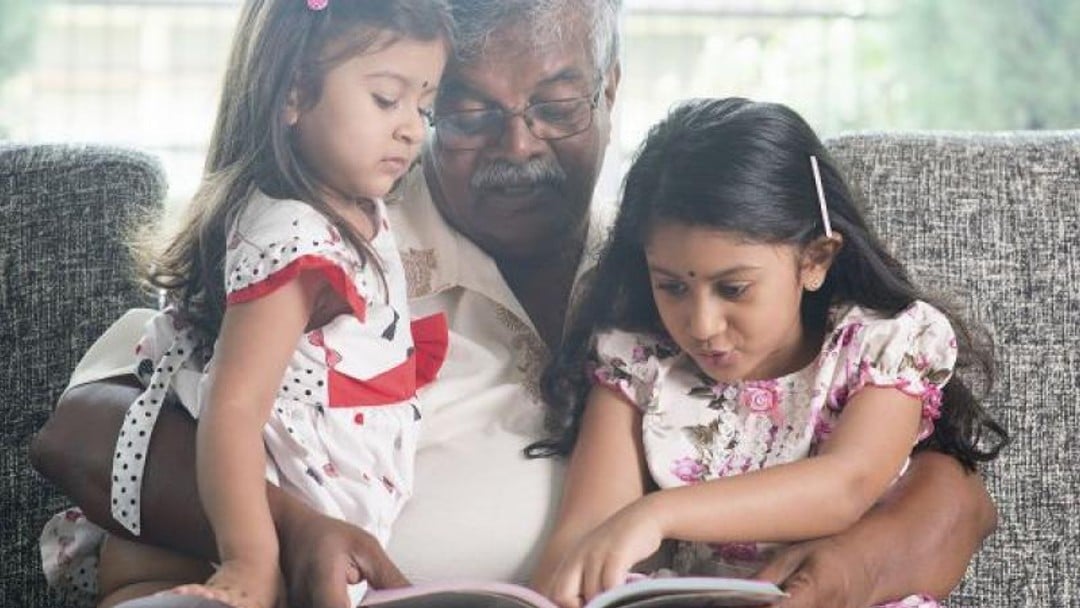What The Archers can teach 'us about grandparents' rights

The Radio 4 soap has highlighted the effects of divorce on the wider family; Elizabeth Fletcher discusses the legal position of grandparents hoping to maintain contact
When families go through a divorce or separation, the focus is usually on the children's relationship with each of their parents and the practical and emotional consequences of the arrangements that are put in place. But what of the extended family?
BBC Radio 4's soap opera The Archers has been in the news a lot recently for its storyline about domestic abuse and the overwhelming effects that an abusive relationship can have on a victim and the wider family. The storyline has now moved to the Family Court, where the grandparents are trying to obtain contact with their grandchild while the child's mother is in prison awaiting trial for stabbing her abuser and the child's stepfather (who has parental responsibility).
While soap operas can be sensationalised, there are certainly many grandparents denied a relationship with their grandchildren once their child's relationship has broken down - but what can they do?
Grandparents in less dramatic circumstances are often very involved with their grandchildren, providing free childcare while parents work, financial support, and a neutral place for children while parents struggle with a separation. However, if things go wrong, it can be devastating for grandparents, who suddenly lose contact with grandchildren through the decisions made by their former son or daughter-in-law. They can feel powerless to do anything about it.
Grandparents Plus (now merged with the Grandparents' Association) is a registered charity which provides advice and support for grandparents in this kind of situation. Its statistics show that six in ten working parents rely on grandparents to look after their babies and that those grandparents who provide childcare do so for an average of 15.9 hours a week. That is coupled with the statistic that up to one million children in Britain are denied contact with their grandparents. These are startling figures.
Support from the courts
Grandparents do not have an automatic right to make an application to the court for contact with their grandchild in the same way that a parent is able to do. So, step one is to apply to the court for leave to make the application. In deciding whether to grant leave, the court will consider the following factors:
-
The nature of the proposed application (how much contact is being asked for);
-
The closeness of the child to the grandparent; and
-
Any risk there might be of the proposed application disrupting the child's life to such an extent that the child is harmed by it.
Prior to issuing an application for leave to apply for a child arrangements order, a grandparent must attend a mediation information and assessment meeting in the same way that a parent applying for contact has to do.
If leave is granted, then the grandparent can apply for a child arrangements order. This can be a protracted process and can involve multiple hearings. The parents may also both be separately represented, which, of course, inevitably increases costs. The child or children will be heard through a Cafcass officer (or, if affordable, a privately funded independent social worker), who will speak to the children and ask what their views are. This will be informative but not definitive, depending on the strength of the views expressed and the age and maturity of the child expressing them. The Cafcass officer will then provide a welfare report to the court to help guide its decision making.
In making any order, the court is guided by the welfare principle (section 1 of the Children Act 1989) in its decision making as to the best interests of the child. The court may order direct or indirect (through letters, emails, and telephone calls) contact, depending on what it considers is in the best interests of the child.
How to avoid court
Grandparents should try to maintain an independent channel of communication with their former son or daughter-in-law when their child's separation becomes imminent. They should try not to take sides and to offer to help as much as possible. Often grandparents need to accept that their relationship with their grandchildren will be different but not necessarily lost.
Mediation can be a great way to find a speedy, cost-efficient, and bespoke resolution to the issues, where a facilitator will try to find a way through the conflict if the parents and those opposing contact will agree to it. Indeed, if all parties agree, then the grandchildren can speak to the mediator themselves.
Family therapy where all the family attend to find support and a solution can also be very effective.
 Elizabeth Fletcher is an associate at Family Law in Partnership @FLiPltd flip.co.uk
Elizabeth Fletcher is an associate at Family Law in Partnership @FLiPltd flip.co.uk

